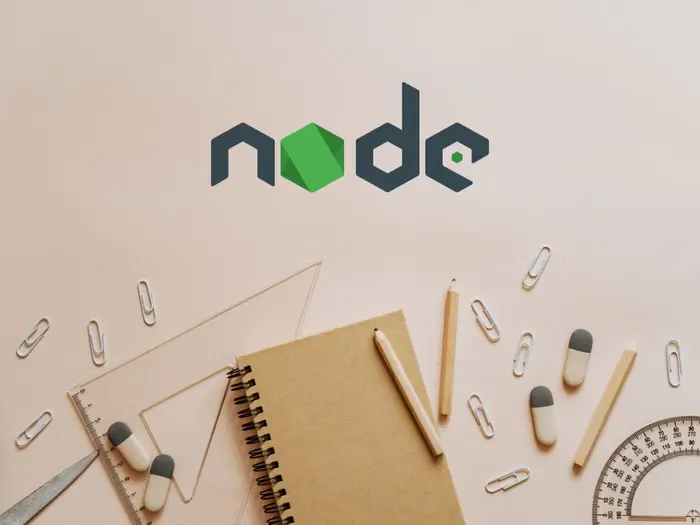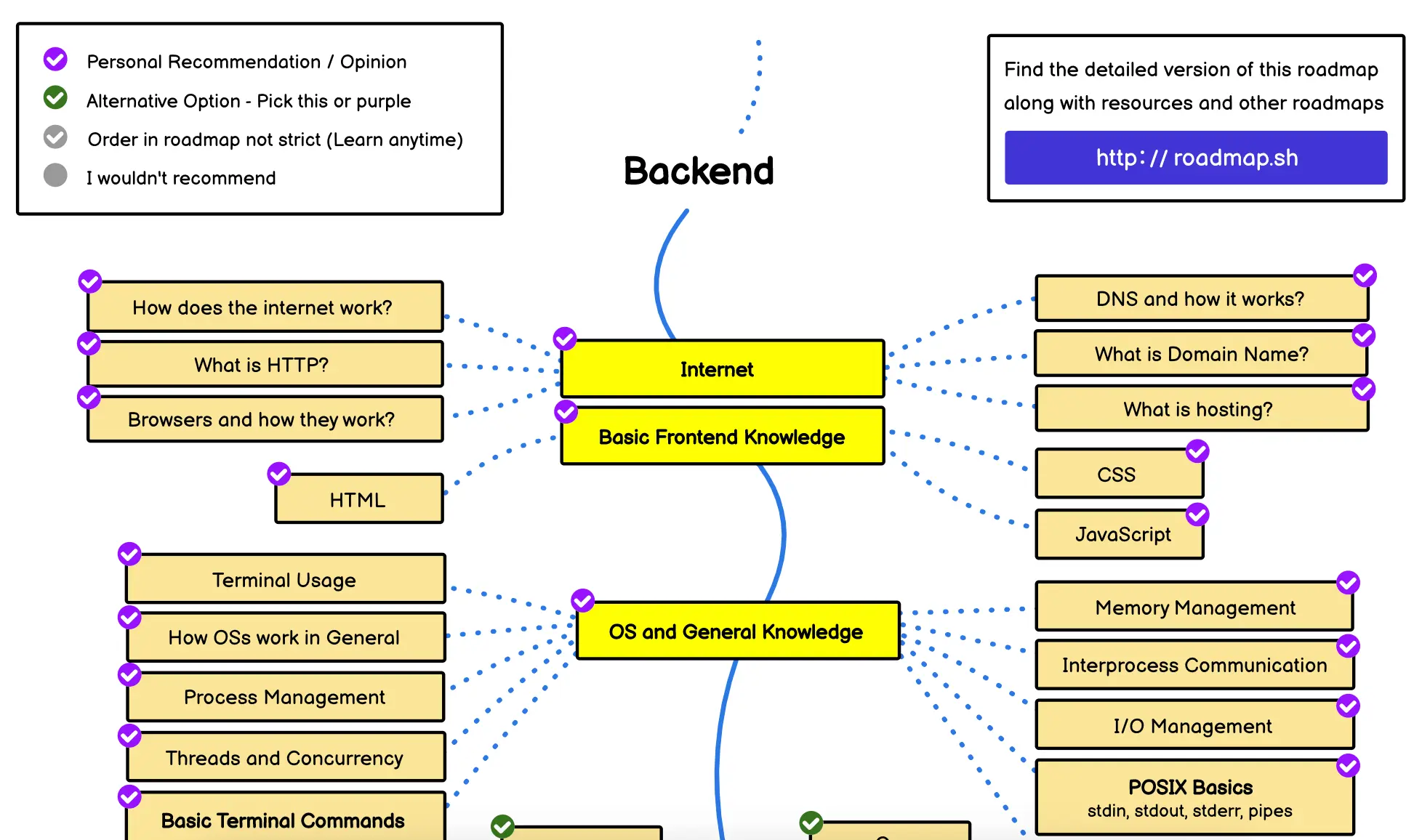
Where to Start Learning Node.js? Is Learning Node.js Difficult?
Issue
Node.js is currently a very attractive platform, which is why more and more people are learning it. According to Stackoverflow's statistics, in 2021, Javascript (JS) ranked first in the popularity rankings on their platform, and Node.js ranked 6th, just after Java. This shows the popularity of Javascript and Node.js is still growing.

Many companies are hiring for Node positions, and many Node-based products or tools have been developed, showing the high level of interest from recruiters. As a technology becomes more popular and the community grows larger, its coverage and reliability also increase.
For FE developers, having experience with JS is a huge advantage in transitioning to a Node.js programming position. After all, Node is a Javascript runtime environment, the only difference is that instead of interacting with the DOM in a browser, you use JS to interact with files, databases, and more.
But for those who are new to programming or have little experience, or for FE developers who want to try their hand at BE, how should they approach learning Node.js? In today's article, I would like to share my experience and perspective with those who are on their way to conquering Node. While this is just my personal view, I hope it can be helpful to everyone.
Understanding the Nature of Node.js
Node.js is not a programming language, it is an environment that allows you to run JavaScript code "outside the browser" and more. Imagine if the browser allows you to run JS code, then Node.js allows you to run JS code on the server. You can say that Node.js here plays a role similar to a browser. So, to learn Node.js, you need to have a knowledge of JS at least.
One convenient thing is that there are many resources available for learning JS, and the JS development community is very large, so you don't have to worry too much about finding help. With just a keyword search like "learn javascript/node.js", there are already many videos, articles, courses, etc. available.
Backend programming is different from frontend programming. In backend programming, you will have to interact with files more (read/write data), interact with databases, and handle data processing logic that is very different from frontend. You can only know more by learning and doing. Learn as you go, you may not start off with good code, but over time, you will improve.
Various Approaches to Learning Node.js
For experienced backend developers, regardless of the programming language they are familiar with, it is a big plus for them because they already have programming thinking and know how to apply it to working with Node.js. The initial difficulty may be the differences in syntax, but this can be overcome over time. Also, each programming language has its own unique features, so it is necessary to spend time to familiarize yourself with those features.
For frontend developers, they can also transition to backend by getting involved in an existing backend project. Just explain the project structure and how it works, and you can start working on creating simple to complex functionalities. This is a quick approach, but still, you need to spend time studying more about backend knowledge. Otherwise, you might miss important foundational knowledge.
What about those who have no programming experience at all? They can search for Node.js courses. In the technology boom era, finding learning resources is not difficult, there are plenty of topics related to Node, both free and paid. If you can find a mentor to support you, that's great, they will guide you to reach your destination faster. When you encounter issues, they can help you debug. But they can't keep spoon-feeding you, you have to take the initiative to make progress.
Regardless of the approach, your learning effort is still the most important. Many articles and lectures follow a certain structure, but simply learning from that might not be enough. Programming knowledge is vast and interconnected. Continuously pushing yourself out of your comfort zone to learn new things, don't be passive and start learning only when you encounter obstacles. Always remember that technologies in general, including Node.js, are updated daily, the knowledge you learn today might become outdated tomorrow.
Advice for Learning Path
First, invest your time in learning the basics of JavaScript, as it is the foundation for further advanced knowledge. There is a comprehensive and detailed JavaScript documentation available on Mozilla. Mozilla is one of the big players in the early web browser industry, so their JavaScript documentation is highly reputable. You can also read the article Demystify: What is Mozilla/5.0? Why does every browser have this string in the User-Agent? to understand the impact of Mozilla.
Mozilla provides comprehensive and detailed articles on JavaScript, from basic JS statements, objects, asynchronous patterns, to diving deeper into the core components of JavaScript such as data types, closures, and event loops... The articles will have reference links between them, so be cautious while searching for information to avoid getting overloaded. My advice is to read the reference documentation as much as possible, as it helps you understand the interconnected knowledge domains.
Some might wonder, why read so much if you haven't used it all. Yes, there is a lot of JS knowledge that we might not need to apply immediately. However, you should still read it to have a comprehensive overview and know what to study in-depth or how to search for relevant resources when needed.
After learning JS, the next step is to learn Node.js. Since Node.js is a JavaScript runtime environment, if you have a solid understanding of JS, it won't be a problem. Nodejs.dev is a website that teaches you how to use Node.js in a Step-By-Step style to get started.
If you find it too challenging, try finding a "starter project". These are pre-built project templates that you can use to start coding. Build a project based on the template and take the time to understand how it works. Keep working on it until you can build your own project without depending on anyone.
Learning without practice is not effective. During the learning process, create your own projects to practice while learning. The more you practice, the more experience you gain, and with enough experience, you will surely conquer Node.js someday.
One day, you will realize that learning just Node.js is not enough to become a professional BE Developer. There are still many things you need to explore, and you need to have a detailed learning roadmap. Roadmap.sh Backend provides a comprehensive roadmap to help you become a professional backend developer.

Here, you will be provided with a roadmap of the knowledge you need to learn to achieve your ultimate goal of becoming a BE Developer. There are many things mentioned in the image that may seem overwhelming, but stay calm, no one can become an expert overnight or in a day or two. Take your time to gradually explore each topic, as I mentioned earlier, it's not necessary to immediately apply all the knowledge you have learned, but you should know what exists in the world of BE so that you know how to search for solutions when facing problems.
Finally, your determination is everything, success or failure depends on you. The learning journey is never easy, but with enough determination, you will achieve success sooner or later.
Conclusion
Overall, starting with JavaScript, including Node.js, is not too difficult. The basic knowledge of these technologies is light and you can get acquainted with them quickly. It also serves as a foundation for you to delve into advanced knowledge later on. Remember, if you want to learn fast, learn the basics, but if you want to excel, you have to learn the advanced concepts.
Self-learning is a long process that requires patience. Finding a good mentor is valuable, but if you can't, the path may be a little challenging. However, in return, you will learn how to take control of yourself. You may give up at any time, but after those times, you will become more determined. If you stumble, learn how to stand up on your own :D.
Me & the desire to "play with words"
Have you tried writing? And then failed or not satisfied? At 2coffee.dev we have had a hard time with writing. Don't be discouraged, because now we have a way to help you. Click to become a member now!
Subscribe to receive new article notifications
Comments (1)
Mình cũng tự học node trước m code php tay ngang sang js may vẫn code đc. Để nói biết nhiều thì ko dám nhưng biết cách search. Khuyên mn là nên đọc các bài viết về chủ đề này thường xuyên hơn
Mình cũng tự học node trước m code php tay ngang sang js may vẫn code đc. Để nói biết nhiều thì ko dám nhưng biết cách search. Khuyên mn là nên đọc các bài viết về chủ đề này thường xuyên hơn
@gif [BPJmthQ3YRwD6QqcVD] Chúc mừng bạn